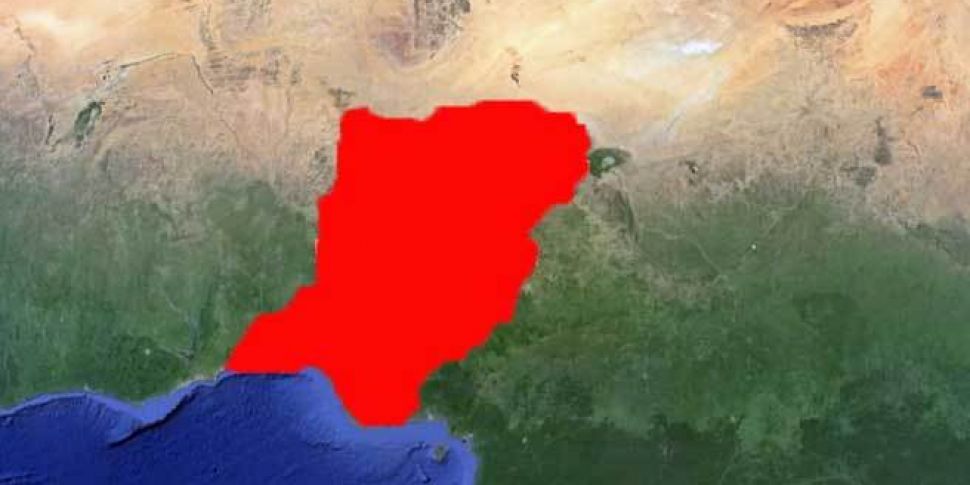The Department of Foreign Affairs has advised Irish citizens against non-essential travel to Nigeria in the wake of a deadly Ebola outbreak in the region.
On July 28th, the government there quarantined a hospital in Lagos State following the death of a Liberian citizen who is believed to have contacted the Ebola virus.
Officials at International Airports in Nigeria are understood to be monitoring travellers for symptoms of the virus.
"There is no significant risk of infection to Irish citizens who are not directly involved in treating (or burying) Ebola patients. Also please be advised that some flights within the West African region have been suspended, particularly those between Liberia and its neighbours" the department said.
It comes as the British government held an emergency committee meeting to discuss how to tackle the "new and emerging" threat of Ebola, as doctors in Britain were put on alert to spot symptoms of the deadly disease.
The outbreak is the largest in history, with the virus killing more than 670 people in Sierra Leone, Liberia, Guinea and Nigeria since February.
British Airways, which flies to Sierra Leone and Nigeria, said in a statement "The safety and security of our customers and crew is always our top priority. We fully comply with the guidance provided by local health authorities and continue to monitor the situation closely".
Health workers tackling the outbreak have been particularly vulnerable to Ebola, which can have a fatality rate of up to 90%. There is no treatment or vaccine.
Concerns have been raised following the death of an infected American man who had passed through several African airports.
His widow Decontee Sawyer is worried it is going to spread:
Dr Stephan Monroe from the Centres for Disease Control has advice for anyone going there:
Dr Brian McCloskey, director of global health at Public Health England (PHE), said the risk to travellers and workers was low, but doctors needed to be vigilant.
Dr McCloskey said "The continuing increase in cases, especially in Sierra Leone, and the importation of a single case from Liberia to Nigeria is a cause for concern as it indicates the outbreak is not yet under control".
"We have alerted UK medical practitioners about the situation in West Africa and requested they remain vigilant for unexplained illness in those who have visited the affected area".
A strain of the Ebola virus
"People who have returned from affected areas who have a sudden onset of symptoms such as fever, headache, sore throat and general malaise within three weeks of their return should immediately seek medical assistance".
The chief scientific adviser to the UK government, Mark Walport, has told the Daily Telegraph that Ebola was "potentially a major threat" to Britain due to the increasingly "interconnected" nature of the world.
This video from the World Health Organisation (WHO) explains what is going on to try and stop the spread.
Symptoms of the disease
The Ebola virus disease (EVD) has a case fatality rate of up to 90%. Outbreaks occur primarily in remote villages in Central and West Africa, near tropical rainforests.
The virus is introduced into the human population through close contact with the blood, secretions, organs or other bodily fluids of infected animals.
Ebola spreads in the community through human-to-human transmission - with infection resulting from direct contact (through broken skin or mucous membranes) with the blood, secretions, organs or other bodily fluids of infected people, and indirect contact with environments contaminated with such fluids.
The virus first appeared in 1976 in two simultaneous outbreaks - in Nzara, Sudan, and in Yambuku, Democratic Republic of Congo. The latter was in a village situated near the Ebola River, from which the disease takes its name.
It is often characterised by the sudden onset of fever, intense weakness, muscle pain, headache and sore throat. This is followed by vomiting, diarrhoea, rash, impaired kidney and liver function - and in some cases, both internal and external bleeding.
The incubation period - the time interval from infection with the virus to onset of symptoms - is anywhere from two to 21 days.
Ireland's ambassador for Sierra Leone and Liberia, Sinead Walsh, told Newstalk Breakfast the WHO is now at their highest level over the outbreak:
Originally posted 09:53










